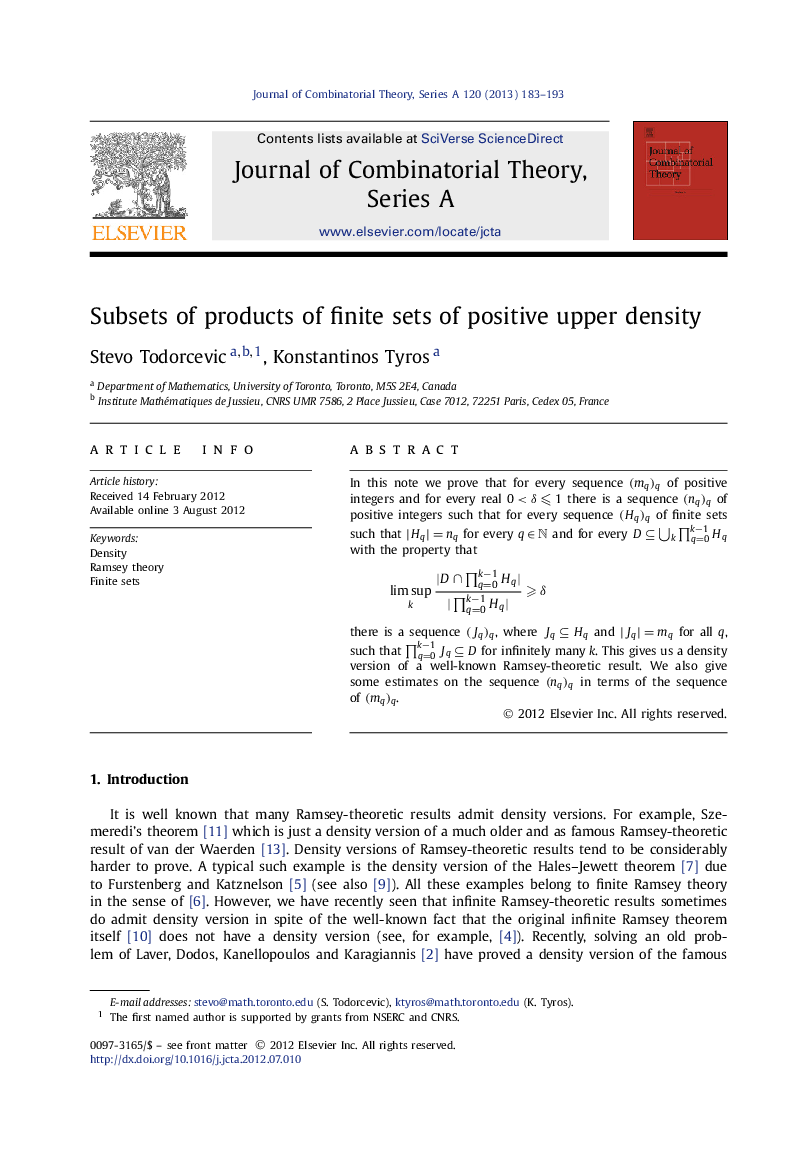| Article ID | Journal | Published Year | Pages | File Type |
|---|---|---|---|---|
| 4655556 | Journal of Combinatorial Theory, Series A | 2013 | 11 Pages |
Abstract
In this note we prove that for every sequence (mq)q(mq)q of positive integers and for every real 0<δ≤10<δ≤1 there is a sequence (nq)q(nq)q of positive integers such that for every sequence (Hq)q(Hq)q of finite sets such that |Hq|=nq|Hq|=nq for every q∈Nq∈N and for every D⊆⋃k∏q=0k−1Hq with the property thatlimsupk|D∩∏q=0k−1Hq||∏q=0k−1Hq|≥δ there is a sequence (Jq)q(Jq)q, where Jq⊆HqJq⊆Hq and |Jq|=mq|Jq|=mq for all q , such that ∏q=0k−1Jq⊆D for infinitely many k . This gives us a density version of a well-known Ramsey-theoretic result. We also give some estimates on the sequence (nq)q(nq)q in terms of the sequence of (mq)q(mq)q.
Keywords
Related Topics
Physical Sciences and Engineering
Mathematics
Discrete Mathematics and Combinatorics
Authors
Stevo Todorcevic, Konstantinos Tyros,
